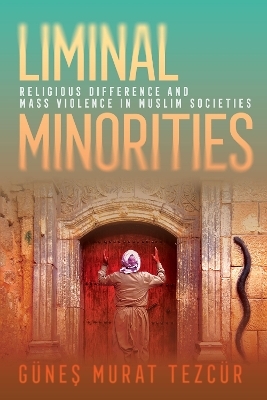
Liminal Minorities
Religious Difference and Mass Violence in Muslim Societies
Seiten
2024
Cornell University Press (Verlag)
978-1-5017-7467-6 (ISBN)
Cornell University Press (Verlag)
978-1-5017-7467-6 (ISBN)
- Lieferbar (Termin unbekannt)
- Versandkostenfrei innerhalb Deutschlands
- Auch auf Rechnung
- Verfügbarkeit in der Filiale vor Ort prüfen
- Artikel merken
Liminal Minorities addresses the question of why some religious minorities provoke the ire of majoritarian groups and become targets of organized violence, even though they lack significant power and pose no political threat. Güneş Murat Tezcür argues that these faith groups are stigmatized across generations, as they lack theological recognition and social acceptance from the dominant religious group. Religious justifications of violence have a strong mobilization power when directed against liminal minorities, which makes these groups particularly vulnerable to mass violence during periods of political change.
Offering the first comparative-historical study of mass atrocities against religious minorities in Muslim societies, Tezcür focuses on two case studies—the Islamic State's genocidal attacks against the Yezidis in northern Iraq in the 2010s and massacres of Alevis in Turkey in the 1970s and 1990s—while also addressing discrimination and violence against followers of the Bahá'í faith in Iran and Ahmadis in Pakistan and Indonesia. Analyzing a variety of original sources, including interviews with survivors and court documents, Tezcür reveals how religious stigmatization and political resentment motivate ordinary people to participate in mass atrocities.
Offering the first comparative-historical study of mass atrocities against religious minorities in Muslim societies, Tezcür focuses on two case studies—the Islamic State's genocidal attacks against the Yezidis in northern Iraq in the 2010s and massacres of Alevis in Turkey in the 1970s and 1990s—while also addressing discrimination and violence against followers of the Bahá'í faith in Iran and Ahmadis in Pakistan and Indonesia. Analyzing a variety of original sources, including interviews with survivors and court documents, Tezcür reveals how religious stigmatization and political resentment motivate ordinary people to participate in mass atrocities.
Güneş Murat Tezcür is the Director of the School of Politics and Global Studies at Arizona State University. He is the author of Muslim Reformers in Iran and Turkey and the editor of The Oxford Handbook of Turkish Politics.
| Erscheinungsdatum | 02.03.2024 |
|---|---|
| Reihe/Serie | Religion and Conflict |
| Zusatzinfo | 4 Charts; 1 Line drawings, black and white; 14 Halftones, black and white |
| Verlagsort | Ithaca |
| Sprache | englisch |
| Maße | 152 x 229 mm |
| Gewicht | 907 g |
| Themenwelt | Geschichte ► Teilgebiete der Geschichte ► Religionsgeschichte |
| Geisteswissenschaften ► Religion / Theologie ► Islam | |
| Sozialwissenschaften ► Soziologie | |
| ISBN-10 | 1-5017-7467-0 / 1501774670 |
| ISBN-13 | 978-1-5017-7467-6 / 9781501774676 |
| Zustand | Neuware |
| Informationen gemäß Produktsicherheitsverordnung (GPSR) | |
| Haben Sie eine Frage zum Produkt? |
Mehr entdecken
aus dem Bereich
aus dem Bereich
Von den Anfängen bis zur Gegenwart
Buch | Hardcover (2022)
C.H.Beck (Verlag)
34,00 €
Herkunft, Blüte, Weg nach Osten
Buch | Hardcover (2024)
C.H.Beck (Verlag)
39,00 €


